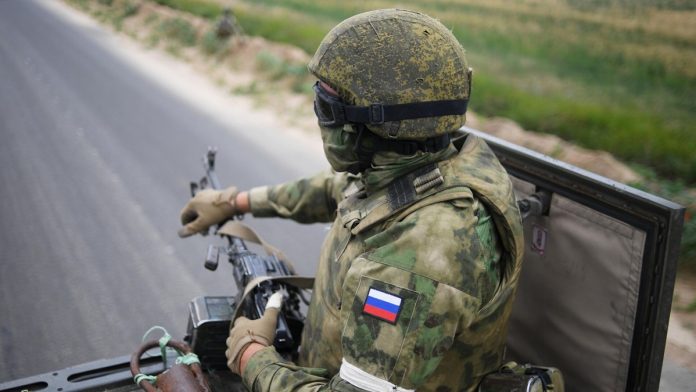February 24, 2022, marked a significant moment in world history when President Vladimir Putin announced Russia’s special military operation (SMO) in Ukraine. Many experts consider this event as pivotal, signaling Russia’s stance against the prevailing Western hegemony. The Ukraine crisis has shattered the established international security framework post-Cold War.
For Moscow, the military intervention appears as a last resort due to the perceived unwillingness of Western powers to address Russian concerns. Despite this, Russia has shown willingness to engage in diplomatic dialogue, as seen in the talks in Istanbul early in the conflict. Moscow is prepared to pursue both military and diplomatic avenues.
The majority of the Arab public perceives the Russian military operation as a confrontation with the Western bloc led by Washington, rather than with Ukraine itself. However, reactions from Arab countries vary widely, from explicit support to strong condemnation, with some opting for neutrality to balance geopolitical interests.
Certain Arab nations, citing historical ties and strategic partnerships, have expressed support or understanding for Russia’s actions. For example, Syria, a recipient of Russian military support during its civil war, stands firmly behind Russia. Similarly, other countries with close economic and military relations with Moscow have emphasized respecting state sovereignty and non-interference in internal affairs.
Conversely, some Arab countries have condemned Russia’s military operation, advocating for international law and the principles of state sovereignty and territorial integrity. While not joining Western sanctions, countries like Saudi Arabia and the UAE have called for a peaceful resolution and protection of civilians.
Many Arab nations have adopted a neutral or moderate stance, advocating for dialogue and peaceful conflict resolution through international organizations like the United Nations. The conflict’s impact extends beyond geopolitics, affecting the Arab world economically and politically.
The Arab region heavily relies on wheat imports from Ukraine and Russia, making up over 60 percent of some countries’ needs. Disruption of supply chains due to the conflict has led to rising food prices, threatening food security. Moreover, soaring oil and gas prices benefit oil-producing Arab countries but pose challenges for import-dependent nations, increasing inflation and economic strain.
The conflict has also dampened tourism, a significant contributor to the region’s economy, affecting countries popular with Russian and Ukrainian visitors. While the crisis presents challenges, it also prompts Arab countries to diversify import sources and explore renewable energy options for long-term stability.
Despite challenges, the Arab world’s response to the crisis underscores its commitment to international peace and stability. Arab nations have engaged in diplomatic mediation efforts, recognizing the importance of dialogue and cooperation in resolving global conflicts. By facilitating dialogue and seeking peaceful resolutions, the Arab world contributes to broader international efforts for stability and justice.
In addition to the immediate economic and political impacts, the conflict in Ukraine has prompted a reevaluation of regional alliances and partnerships. Arab countries are exploring new relationships with non-Western powers, including Russia, China, and India. This shift reflects a broader trend of diversification and a desire for greater autonomy in international relations.
Furthermore, the conflict highlights the interconnectedness of global issues and the need for collective action. Arab countries recognize the importance of addressing conflicts and crises beyond their borders, as they can have far-reaching consequences for regional stability and security.
Despite differences in approach, Arab countries share a common goal of promoting peace and stability in Ukraine and the wider world. Whether through support for Russia, condemnation of military intervention, or mediation efforts, Arab nations play a crucial role in shaping the international response to the crisis.
Looking ahead, the Arab world faces both challenges and opportunities in navigating the complexities of the Ukraine conflict. By maintaining a balanced and principled approach, Arab countries can contribute to efforts to resolve the crisis peacefully and promote a more stable and just international order.




